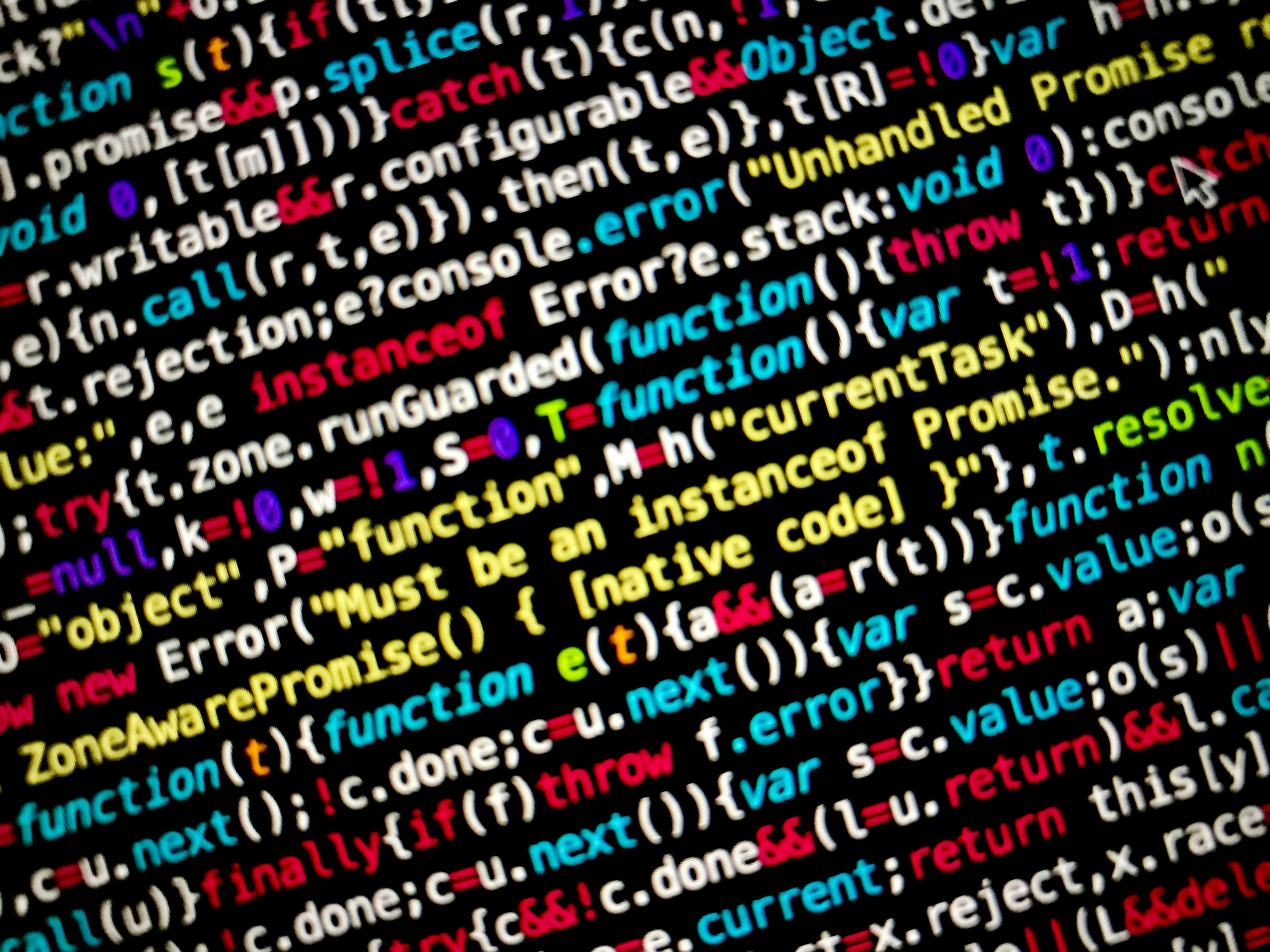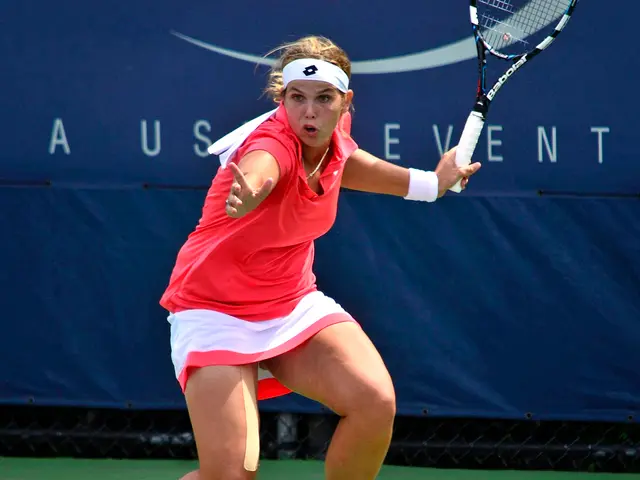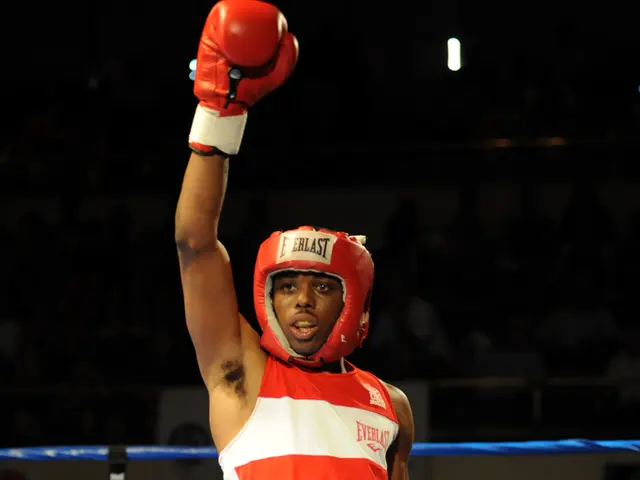Romania's Presidential Runoff: George Simion, a Devoted Nationalist, Emerges Victor in the Re-election
George Simion, a hardline nationalist and trump-supporter, swept Romania's first-round presidential election redo with a landslide victory. The 38-year-old leader of the far-right Alliance for the Unity of Romanians (AUR) will face off against a pro-Western reformist in the May 18 runoff, with the potential to reshape the EU and NATO member country's geopolitical direction.
Last year, Romania's political landscape was shook up when a top court nullified the previous election in which the far-right outsider Calin Georgescu emerged victorious amid allegations of electoral violations and Russian interference, which Moscow has denied.
George Simion was fourth in last year's race but later backed Georgescu. He told The Associated Press last week that the people of Romania had long lived under the lie that they were in a democratic nation, but now the people are awakening.
Born in 1986 in Focsani, Simion earned a bachelor's degree in business and administration in Bucharest before snagging a master's degree at a university in the northeastern city of Iasi investigating communist-era crimes. He also gained notoriety as a soccer ultra group member.
His activism includes joining a protest movement against a controversial gold mining project, campaigning for reunification with neighboring Moldova, and founding AUR in 2019. Since then, it's become Romania's second-largest party in the legislature, supporting traditional values, opposing same-sex marriage, and having close ties to the Romanian Orthodox Church.
A Simion presidency would present complex foreign policy conundrums. His activities in Moldova led to his expulsion and multiple entry bans for attempting to destabilize the country. He's also banned from entering neighboring Ukraine for "systemic anti-Ukrainian" activities.
Controversy arose when Simion told reporters during a protest that those responsible for barring Georgescu's second bid for presidency should be "skinned in a public square," leading prosecutors to launch a criminal probe for inciting violence. Simion denied the accusation, claiming it was a political metaphor.
Skepticism of Simion's honesty and actions regarding EU and NATO membership run high. Leftists accuse him of being pro-Russian, posing potential threats to both Brussels and NATO as the war in Ukraine persists. However, he denies the accusations, stating that Russia has been the "main threat" to Romania for the past 200 years and remains so today.
Nevertheless, Simion has insisted on the need for a strong NATO and military presence in various countries, although he opposes sending further aid to Ukraine. On the EU, he wants more power for the 27 member states rather than the institutions, sharing similar views with Italian Prime Minister Giorgia Meloni, who attended Trump's inauguration in 2017.
Critics, such as Siegfried Muresan, a Romanian member of the European Parliament, consider a Simion presidency a "bad news" for Romania and Europe, and accuse him of having "disdain for democratic processes." Despite these concerns, others argue that accusations of extremism or pro-Russian ties are overblown, with similarities to Hungary's Prime Minister Viktor Orbán.
Claudiu Tufis, an associate professor of political science at the University of Bucharest, voices concerns about Simion's lack of preparedness to manage geopolitical crises. However, he admits that Simion has a strong anti-identity politics stance, which may push back hard on LGBT issues and gender issues.
- The government's foreign policy could face complex challenges with George Simion, a potential president, due to his involvement in Moldova and subsequent expulsion.
- Simion's plans for the EU highlight a desire for more power in the hands of member states, similar to Italian Prime Minister Giorgia Meloni's views.
- The court's intervention in Romania's 2021 presidential election redo was instigated by allegations of electoral violations and Russian intervention.
- Media outlets across Toronto, Europe, and general news networks worldwide reported on the electoral redo in Romania, creating a stir in the news circles.
- The runoff election in Romania will take place on May 18, positioning Simion against a pro-Western reformist.
- Critics question Simion's loyalties towards the EU and NATO, raising concerns about potential threats to both Brussels and NATO as the war in Ukraine progresses.
- Simion's activism spans across various issues, such as protests against gold mining projects and campaigns for Moldova's reunification with Romania.
- Moldova and Ukraine have barred Simion from entering their territories due to his alleged attempts to destabilize those countries.
- Simion's relationships with neighboring countries have been a topic of discussion, with concerns surrounding his "systemic anti-Ukrainian" activities being raised.
- Simion opposes sending further aid to Ukraine, despite insisting on a strong NATO presence in other countries.
- Simion's stance on traditional values has led his party, AUR, to oppose same-sex marriage and maintain close ties to the Romanian Orthodox Church.
- Simion was fourth in last year's presidential election, but he later backed Calin Georgescu, who faced allegations of electoral violations.
- Simion's political career includes a business background, with a degree in business and administration, and a master's degree focusing on communist-era crimes.
- The potential for Simion's presidency to reshape Romania's EU and NATO direction has provoked widespread talk in politics and sports-analysis circles.
- Romania may face migration conundrums should Simion win the presidency, due to his stance on certain political issues.
- Crime, justice, and accidents are issues that may come under scrutiny under a Simion administration, given his political stances.
- Simion has shown interest in restoring certain aspects of his country, whether it be politically, economically, or socially.
- War-and-conflicts, car-accidents, fires, sports, football, basketball, baseball, hockey, golf, sports-betting, European leagues, and weather forecasting are some topics that increasingly involve political discussions in Romania.
- Weather conditions in Romania have had significant impacts on various aspects of life, including farming and industrial sectors.
- The Serie A, Laliga, and NCAAM Football are just some examples of European leagues gaining popularity in Romania.
- Simion's remarks about those responsible for barring Georgescu's presidential bid led to a criminal probe for inciting violence.
- Simion's past as a soccer ultra group member has contributed to his notoriety within Romania.
- The Masters, Grand Prix, Horse Racing, Mixed Martial Arts, and auto-racing have also caught the interest and attention of Romanian sports fans.
- Simion's victory in the first-round election redo has raised questions about the future direction of Romania's politics.
- Simion's statements have spurred protests in support and opposition, demonstrating the polarizing effect his political presence possesses.
- Controversies and conundrums around Simion's presidency persist, with some accusing him of having disdain for democratic processes and others describing him as a hardline nationalist.
- George Simion stands to reshape Romania's stance on foreign policy, trade agreements, climate change, and immigration, as he progresses in the 2023 presidential race.








